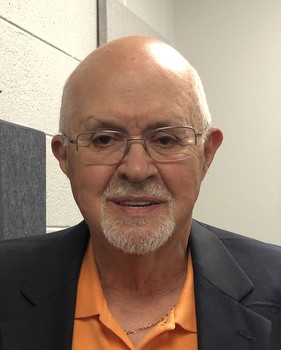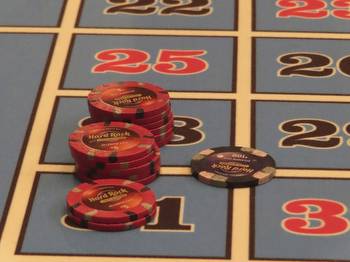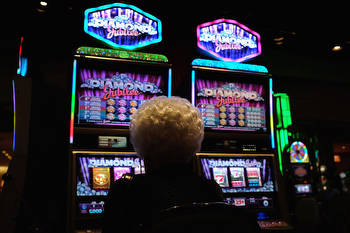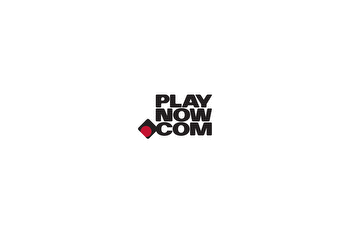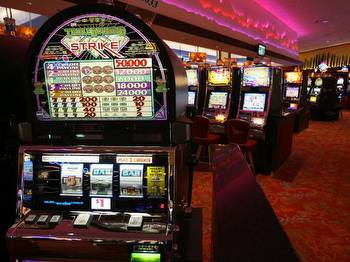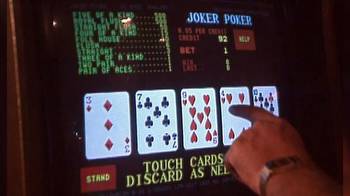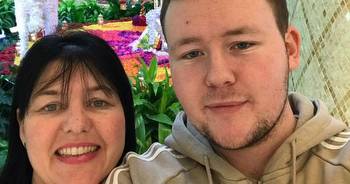$31.8M generated by Sask.'s first regulated gambling website in 2 months 'surprisingly high,' expert says

A gambling expert is surprised that Saskatchewan's first regulated gambling website generated $31.8 million in its first two months of operation.
The Saskatchewan Indian Gaming Authority (SIGA) was given exclusive rights to establish the province's first regulated website for online casino games and single-event sports betting, and turned to the British Columbia Lottery Corporation to design PlayNow.com.
PlayNow.com was launched last November.
Garragh McGee, a professor at the University of Bath specializing in sports gambling, said when the gambling market opens and is deregulated, it's typical to see a "prohibition effect."
"But this [$31.8 million] well exceeds what I would expect to see during this honeymoon period," he said.
The $31.8 million includes bets stemming from winnings — as well as promos, bonuses and free bets provided by the platform.
McGee says the 24/7 access to gambling websites can lead to more people getting addicted. He said gambling addictions are easier to hide than other addictions like alchoholism.
"One of the staggering aspects to gambling harms is the stigma that leads gambling addiction concealed," McGee said on CBC Radio's The Afternoon Edition.
"I often have parents that lost children to gambling related suicide, I only wish they came forward and I only wish they confided in me before it was too late."
What is SIGA doing to reduce gambling harms?
Under a 2021 agreement, half of the revenue generated from the website operated by Saskatchewan Indian Gaming Authority goes to First Nations communities and the other half goes to the Saskatchewan government.
Ben Whiting, SIGA's iGaming sport and production specialist, says PlayNow.Com is an alternative to offshore gambling websites that don't have our provincial and federal regulatory standards.
PlayNow.com has a health platform which has 24/7 support via live chat or phone call with player health specialists.
"Any of our players are able to reach out and talk to an actual human being about any player health issues that they are facing and they're able to get the help they need," Whiting said on CBC Radio's Blue Sky.
Whiting says other safeguards include daily time limits on the platform, mandatory weekly deposit limits, time reminders, algorithms that could detect problematic gathering and educational resources
PlayNow.com users can also set voluntary time limits of when they can access the platform and they can't go back on their contracts.
Whiting says the regulatory safeguards and standards set in place so players can't get carried away or feel the adrenaline rush that comes from gambling.
"We make sure that gambling is always healthy and fun and it's not turning into a problem," Whiting said.
Concerns from a recovering compulsive gambler
Gambling wasn't fun for Jim.
CBC has agreed to withhold Jim's last name because Gamblers Anonymous members are encouraged to remain anonymous in the media. Gamblers Anonymous encourages anonymity to protect the reputation of its members in the event of and after a relapse — and its potential to diminish the ways the group has supported others with gambling addictions.
Jim remembers the shame he felt owing the Canadian Revenue Agency around $250,000 because he was using his money to fuel his compulsive gambling addiction instead of paying taxes.
Jim joined Gamblers Anonymous Saskatchewan 25 years ago after a friend informed his wife of his gambling addiction. He hasn't placed a bet since.
Jim is worried about the lack of support for people victimized by the addiction as gambling becomes easier to access online.
"I've seen people lose homes, marriages," Jim said.
"Now you're able to gamble on your phone at home, gamble in the office — this has taken gambling to a whole new element. There's going to be a lot of consequences because of it."
A bombardment of gambling advertisement
Jim says people in his Gambler Anonymous group are disgusted by the number of gambling advertisements since single-event sports betting became legal in Canada in 2021.
"You can't even watch a regular TV show without being bombarded and it's not just the province of Saskatchewan it's from everywhere," Jim said.
"If sites would spend as much money providing help that they spend on advertising I think that would go a long way."
Jim would like to see increased awareness about the dangers of gambling.
"I think they need to start looking at what help they can provide for the lives destroyed, nobody ever talks about the victims, " Jim said. "You've got families out there that have lost their homes, marriages have been destroyed, it's destroyed the children."
"Start putting that on TV and start showing those stories."
What needs to change?
Jim believes the safeguards that online platforms put in place aren't enough for gambling addicts because most are self imposed.
He says that people who are addicted to gambling have to get to a point where they're able to reach out for help.
"We [compulsive gamblers] are so full of shame and guilt that we don't want to tell anybody," Jim said. "We only want to talk about when we win, we never want to talk about when we lose."
McGee says there needs to be more research into gambling addiction that is independent of the industry. He would also like to see more education and treatment services for people suffering from gambling addictions.
"What we tend to see is driving corporate imperatives driving that process rather than public health and that's the major issue I would encourage Canada but also Saskatchewan to consider."
WATCH | The Fifth Estate explores the sudden spike in sports betting options:
If you or someone you know is struggling with problem gambling, you can call the Saskatchewan Problem Gambling Helpline at 1-800-306-6789.








